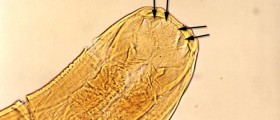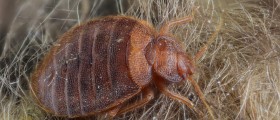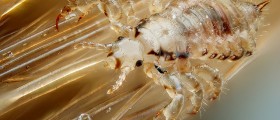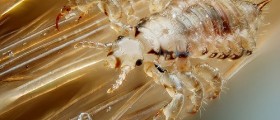
Roundworms are one of the most common type of intestinal parasites on the planet. In fact, there are more than 50,000 different types of these parasites present, with only 15,000 of them being officially named and identified. Once a person suffers from roundworm infestation, these parasites reside and feed in his/her intestines and potentially trigger numerous health issues.
Interestingly enough, roundworms have been with our kind since the times immemorial, the first written documents about them dated back to 2,700 BC.
Appearance and Sexuality
As far as the physical aspect of these parasites is concerned, they have hollow bodies with intestines running through, having a mouth at one and and an anus at the other. They possess no backbone and their body is made of layered muscles. Roundworms can be found in different sizes. Namely, some of these cannot be seen without microscope, while others may exceed the length of 20 feet or even 13 meters.
Another interesting fact about these parasites is that they can either be divided into males and females or be hermaphrodites, having both of the necessary sex organs, reproducing on their own, under adequate conditions. Roundworms lay eggs and multiply this way, laying up to 200,000 of these daily.
Other Facts about Roundworms
Roundworms are very adaptable species and can be found in almost every part of the planet, including the polar regions, tropical areas, fresh or marine waters and soil. Thus, some of these organisms live in the nature, feeding on soil microbes or plant decay, while others reside within the bodies of their hosts, seeking nutrients there. In the latter case, they reside in one's respiratory, digestive or circulatory system.
Speaking of humans as hosts for roundworms, there are specific symptoms which can indicate this kind of infestation. People with roundworms may vomit, experience abdominal pain or fevers, have diarrhea or witness eggs in stool. We usually get infected by getting in contact with the eggs or larvae.
Therefore, best prevention of roundworms is proper hygiene. Once we allow the larvae or eggs to reach our body, it is already too late, since the infection is bound to spread all around our organism.
All in all, roundworm infestation is not something to be ignored or neglected. Rather, as soon as the symptoms appear, you are advised to seek medical assistance and have this problem treated successfully, avoiding potential health complications which can even be life-threatening.

















Your thoughts on this
Loading...